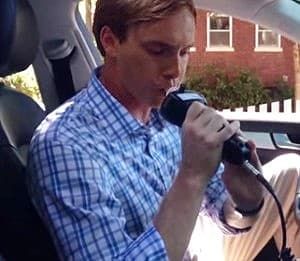 A body that advises legislators on child safety has recommended that all North Carolina drunk drivers be required to use ignition interlocks. An ignition interlock, or car breathalyzer, prevents a vehicle from starting if the driver has been drinking.
A body that advises legislators on child safety has recommended that all North Carolina drunk drivers be required to use ignition interlocks. An ignition interlock, or car breathalyzer, prevents a vehicle from starting if the driver has been drinking.
Currently, repeat DUI offenders, and first offenders whose alcohol level is .15 or above, are required to use interlock devices. The Child Fatality Task Force voted to support a bill mandating the devices for all offenders with a blood alcohol concentration (BAC) of .08 or more.
North Carolina is playing catch-up in this regard. Currently, 30 states have all-offender ignition interlock laws, and several states have similar bills moving through their legislatures.
About 400 North Carolinians die each year as a result of an alcohol-related road crash. Ignition interlocks are known to reduce the number of DUI deaths, because repeat offenders are kept from starting their vehicle. As a result, many intoxicated people are kept off the roads. In a recent report Mothers Against Drunk Driving (MADD) noted that ignition interlocks have prevented well over 2 million incidences of drunk driving.
The Evidence Mounts
There is more evidence that the devices work – evidence that backs the Child Fatality Task Force’s conclusion.
- In its 2018 report, State of Safety, The National Safety Council listed Ignition Interlocks as a vital aid in saving lives on the road.
- The National Governors Association also recommended ignition interlocks for all DUI offenders in its recent report State Strategies to Reduce Highway and Traffic Fatalities and Injuries.
- The National Academies of Sciences, Engineering and Medicine issued a new report calling for ignition interlock laws, among other measures, to reduce DUI fatalities.
Month by month, the evidence mounts, and experts weigh in. It’s hard to avoid their conclusion: all states – North Carolina included – should be saving more lives by requiring all drunk drivers to use ignition interlock devices.
If you’re in North Carolina, now is a great time to contact your legislators and add your voice the others who are demanding safer roads in the state.
